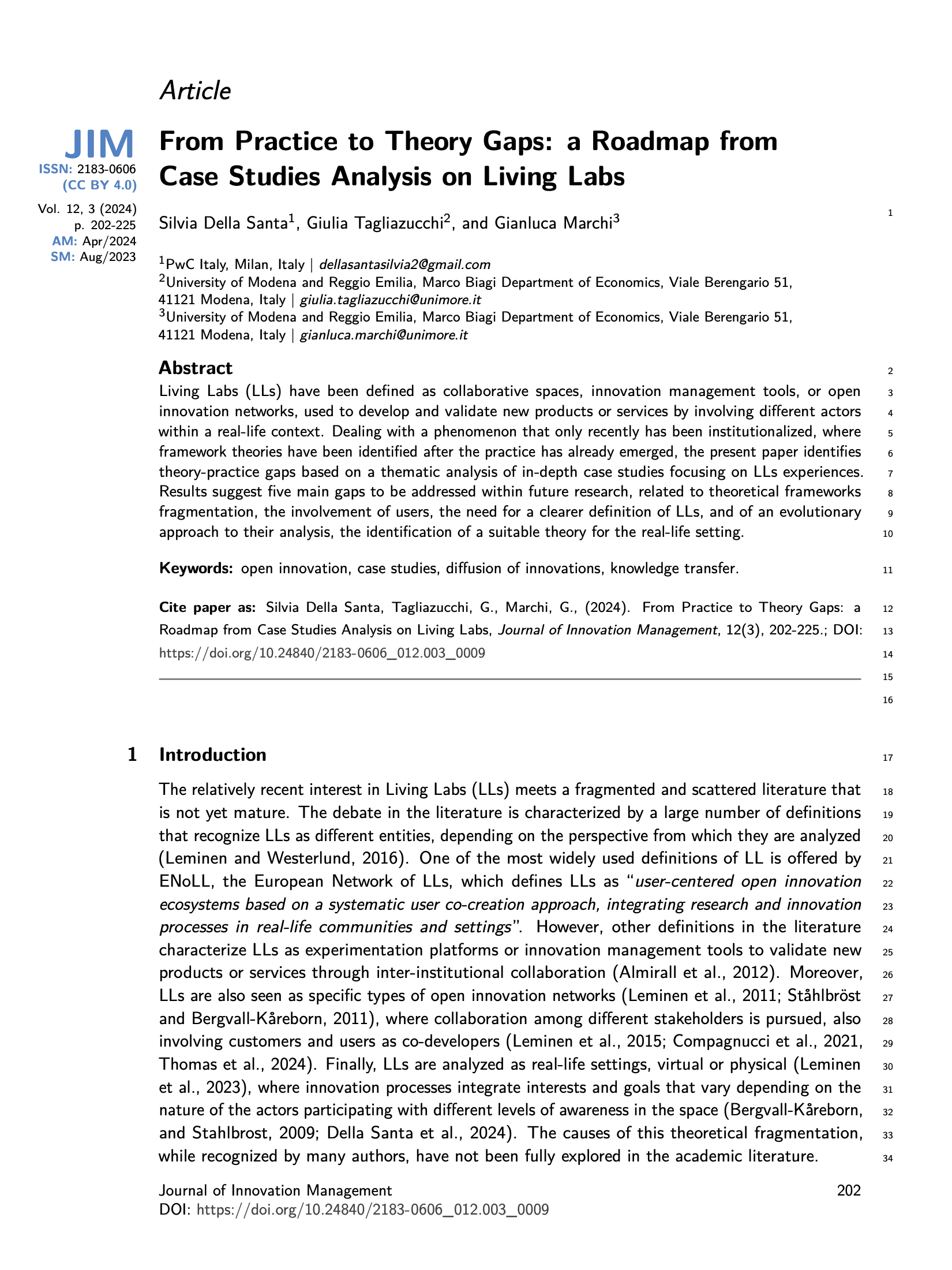From Practice to Theory Gaps: a Roadmap from Case Studies Analysis on Living Labs [Special Issue on Living Labs and Collaborative Innovation]
Main Article Content
Abstract
Living Labs (LLs) have been defined as collaborative spaces, innovation management tools, or open innovation networks, used to develop and validate new products or services by involving different actors within a real-life context. Dealing with a phenomenon that only recently has been institutionalized, where framework theories have been identified after the practice has already emerged, the present paper identifies theory-practice gaps based on a thematic analysis of in-depth case studies focusing on LLs experiences. Results suggest five main gaps to be addressed within future research, related to theoretical frameworks fragmentation, the involvement of users, the need for a clearer definition of LLs, and of an evolutionary approach to their analysis, the identification of a suitable theory for the real-life setting.
Article Details
Authors who publish with this journal agree to the following terms:
- Authors retain copyright and grant the journal right of first publication with the work simultaneously licensed under a Creative Commons Attribution License that allows others to share the work with an acknowledgement of the work's authorship and initial publication in this journal.
- Authors are able to enter into separate, additional contractual arrangements for the non-exclusive distribution of the journal's published version of the work (e.g., post it to an institutional repository or publish it in a book), with an acknowledgement of its initial publication in this journal.
- Authors are permitted and encouraged to post their work online (e.g., in institutional repositories or on their website) prior to and during the submission process, as it can lead to productive exchanges, as well as earlier and greater citation of published work (See The Effect of Open Access).

